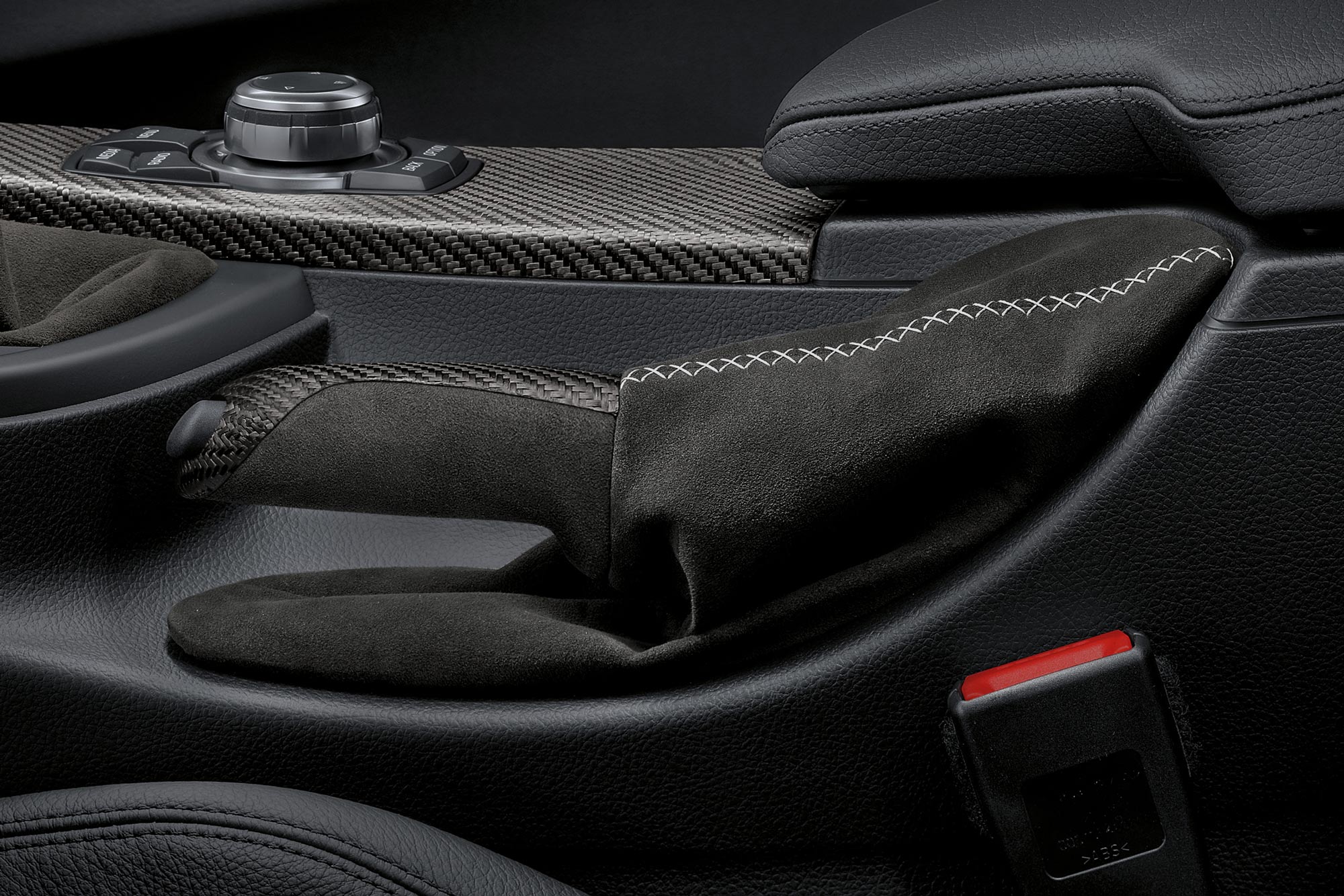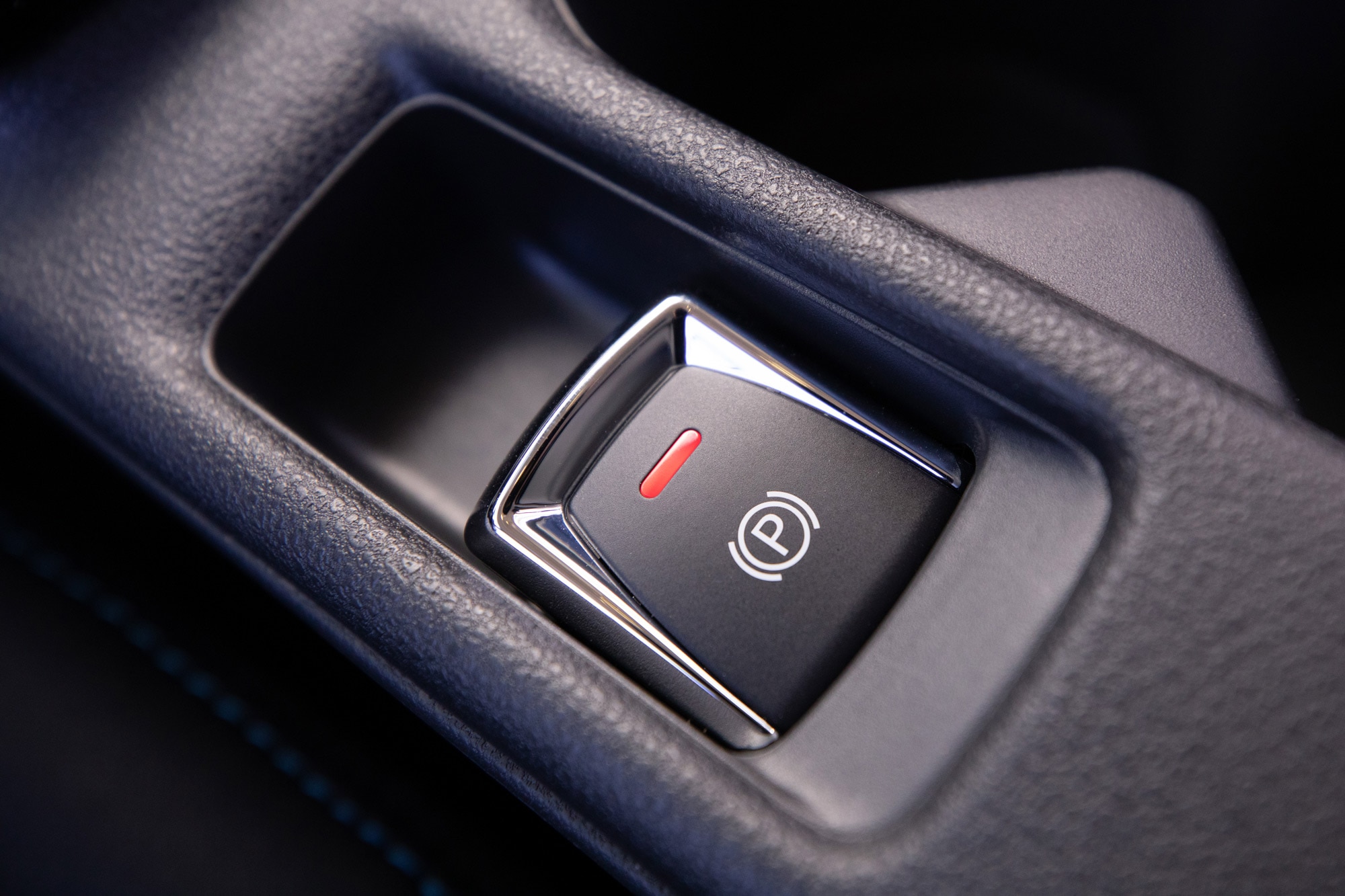When Should You Use the Parking Brake?
It's important to know how the emergency automotive brake works.
 BMW
BMW
Whether powered by fossil fuel or electricity, every modern automobile has a parking brake. While you might think "parking brake" tells you everything you need to know about how this component works, it's important to understand when to use it to keep you and your vehicle safe.
 Nissan
Nissan
How a Parking Brake Works
Your car may have a parking brake lever, a foot pedal, or an electronic button or switch, but every modern vehicle's parking brake works by engaging the brakes on the rear wheels only.
In most older vehicles, a lever pulls on a system of metal cables, while modern cars with electronic parking brakes use a small electric motor to squeeze the rear brakes.
When You Should Use Your Parking Brake
No matter what or where you drive, you should use the parking brake every time you park your vehicle. Tom and Ray Magliozzi, the former hosts of NPR's Car Talk radio show, recommended it, and
The parking brake can also prevent your car from rolling away if another vehicle taps it or crashes into it at speed when you're parked along a road. Regular parking-brake use ensures that everything is working for those days when you need it. As the Car Talk hosts note: A parking brake that's rarely used can seize up with rust, getting stuck in either the on or off position.
The Difference Between a Parking and an Emergency Brake
Your parking brake operates independently from the brake foot pedal you use while driving. Because of this, early automobile manufacturers sometimes used the term emergency brake, or e brake, because it worked even if the primary brake pedal mechanism failed.
Modern safety features make a total brake-pedal failure highly unlikely. Just to be sure,
"We found that the electronic parking brake does stop the vehicle," Consumer Reports' Mike Crossen writes about the test. "When the parking brake engages, it can best be described as a noisy stop. The overall experience falls somewhere between a panic stop and normal braking."
During testing, drivers had to hold down the parking brake switch or button continuously until the vehicle reached a full stop.
When You Shouldn't Use Your Parking Brake
There are two situations when you should avoid using your parking brake. The first is obvious. Don't use the parking brake while driving. Suddenly jamming on your rear brakes at speed can cause your car to skid out of control, and a parking brake that isn't fully disengaged can overheat the brakes as you drive. Luckily, most electronic parking brakes will automatically disengage if you try to drive away.
AAA explains that you might also want to avoid the parking brake in slushy or icy conditions. The mechanism could ice over and refuse to disengage when you try to drive away.
Written by humans.
Edited by humans.
 Bob Sorokanich
Bob SorokanichBob Sorokanich is a car-obsessed journalist and editor who manages to maintain an old Mini Cooper and a love affair with automobiles while living in New York City. When he's not thinking about cars, he's riding his motorcycle, and when he's not riding his motorcycle, he's anticipating his next joy ride.
Related articles
View more related articles